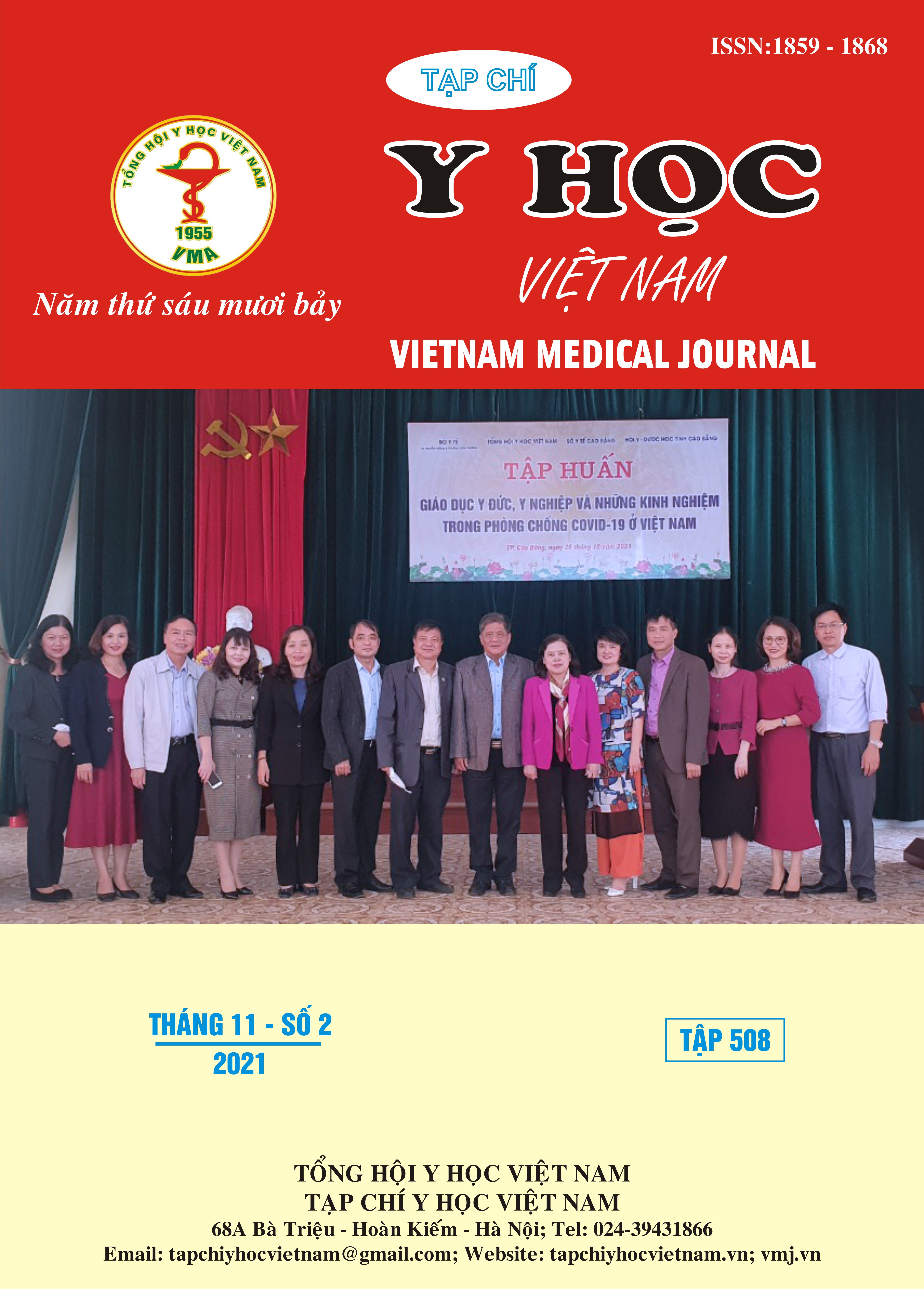APPLICATION NEXT GENERATION SEQUENCING IN DETECTING MUTATIONS OF PARKINSON’S DISEASE CAUSING GENES
Main Article Content
Abstract
Background: Parkinson's disease, characterized by the progressive and selective degeneration of substantia nigra dopaminergic neuron, is one of the most common neurodegenerative disorders. Although Parkinson’s disease has been investigated intensely for ages, the pathogenesis of Parkinson’s disease remains indistinct. Genetic and environmental factors maybe play an interactional role in the etiology of Parkinson’s disease. However, with the rapid growth of recent studies, genetic factors play a crucial role in the progression of Parkinson’s disease. Objectives: Next-generation sequencing (NGS) has been used to detect mutations on 20 genes relating to Parkinson's disease. Methods: Blood samples were collected from 60 Parkinson's patients based on their clinical symptoms and MDS-UPDRS scores. DNA was extracted from peripheral blood samples of patients. DNA was fragmented and prepared library to conducting sequencing. BASESPACE software was used for data analysis. Results: From 60 Parkinson's patients, we detected 10 patients (16,7%) had pathogenic mutations, including LRRK2 R1628P (6 cases), GBA c.115+1C>T (2 cases), GBA L444P (1 cases) và PLA2G6 A80T (1 case). Conclusion: NGS was successfully applied to identify mutants in Parkinson's genes, helping to test for diagnostic genes to determine Parkinson's genetic neuropathy.
Article Details
Keywords
Parkinson’s disease, next generation sequencing, mutation
References
2. Mai P-T, Le D-T, Nguyen T-T, et al. Novel GDAP1 Mutation in a Vietnamese Family with Charcot-Marie-Tooth Disease. BioMed Res Int. 2019;2019:7132494. doi:10.1155/2019/7132494
3. Do MD, Mai TP, Do AD, et al. Risk factors for cutaneous reactions to allopurinol in Kinh Vietnamese: results from a case-control study. Arthritis Res Ther. 2020;22(1):182. doi:10.1186/s13075-020-02273-1
4. Do MD, Pham DV, Le LP, et al. Recurrent PROC and novel PROS1 mutations in Vietnamese patients diagnosed with idiopathic deep venous thrombosis. Int J Lab Hematol. 2021;43(2):266-272. doi:10.1111/ijlh.13345
5. Tran TT, Mai TP, Tran HCB, et al. Association Between AGT M235T and Left Ventricular Mass in Vietnamese Patients Diagnosed With Essential Hypertension. Front Cardiovasc Med. 2021;8:608948. doi:10.3389/fcvm.2021.608948
6. Thao MP, Tuan PVA, Linh LGH, et al. Association of HLA-B∗38:02 with Antithyroid Drug-Induced Agranulocytosis in Kinh Vietnamese Patients. Int J Endocrinol. 2018;2018:7965346. doi:10.1155/2018/7965346
7. Do MD, Le LGH, Nguyen VT, et al. High-Resolution HLA Typing of HLA-A, -B, -C, -DRB1, and -DQB1 in Kinh Vietnamese by Using Next-Generation Sequencing. Front Genet. 2020;11:383. doi:10.3389/fgene.2020.00383
8. Kiet NC, Khuong LT, Minh DD, et al. Spectrum of mutations in the RB1 gene in Vietnamese patients with retinoblastoma. Mol Vis. 2019;25:215-221.
9. Nguyen HT, Tran DH, Ngo QD, et al. Evaluation of a Liquid Biopsy Protocol using Ultra-Deep Massive Parallel Sequencing for Detecting and Quantifying Circulation Tumor DNA in Colorectal Cancer Patients. Cancer Invest. 2020;38(2):85-93. doi:10.1080/07357907.2020.1713350


